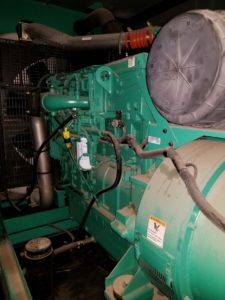The Keys to Industrial Generator Maintenance
 Big and small companies alike that depend on generators either for primary or backup power must be sure to keep up with industrial generator maintenance. Luckily, with a few basic items of maintenance, including generator upgrades and battery inspection, generator malfunction can be prevented and mission critical functions will be well-protected against downtime.
Big and small companies alike that depend on generators either for primary or backup power must be sure to keep up with industrial generator maintenance. Luckily, with a few basic items of maintenance, including generator upgrades and battery inspection, generator malfunction can be prevented and mission critical functions will be well-protected against downtime.
Industrial Generator Maintenance Guide
What does routine industrial generator maintenance entail? The following types of maintenance are key to keeping generators in prime working condition:
- Upgrades: Whether generator components have aged and worn requiring replacement or a unit fails to meet compliance regulations, upgrades are essential to the success of any generator unit. Upgrading specific parts of a generator rather than entirely replacing a unit can be a huge money saver and may extend the life of your generator by years.
- Fluid Levels Check: To keep your generator’s engine running smoothly, fluid levels must be maintained at certain levels. The engine’s oil level should be kept as close to full as possible at all times. Coolant should be kept about 3/4-inch below the radiator cap lower sealing surface for optimum efficiency.
- Battery Inspection: Battery issues are a leading cause of generator failure. This means regular battery checks and testing are vital to keeping generators in working order. Batteries of industrial generators should be tested at least weekly to make sure they are performing up to standard, and replaced if and when any issues arise.
- Load Bank Testing: Load bank testing helps to verify that the primary components of the generator are functioning properly. The tests are completed by using special equipment that produces artificial loads to make sure your generator can handle loads up to its full kilowatt output rating.
- Fuel & Filter Check: Fuels like diesel have a limited shelf life and can become corroded if not stored properly. Test fuel on a regular basis to make sure it’s in stable condition. Also be sure to check filters and clean and replace them when necessary to keep engines running without a hitch.
By keeping up with all types of routine generator maintenance, businesses can be assured that they have equipment that can be relied upon in case of an emergency. Keep power loss from disrupting essential operations by inspecting generators frequently.

